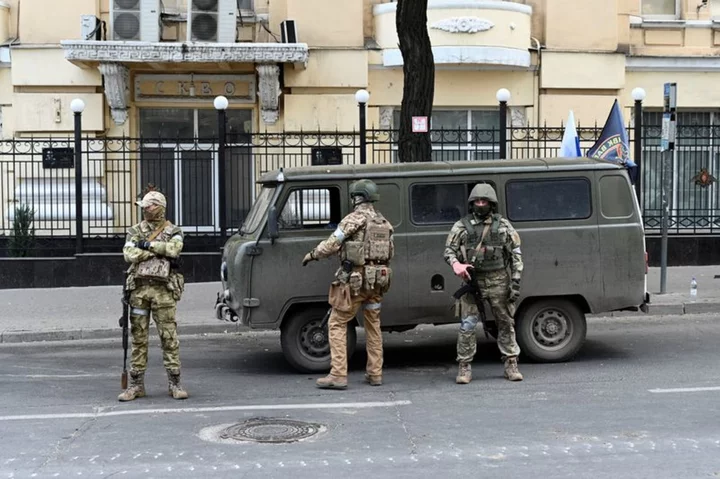By Polina Devitt and Dmitry Zhdannikov
LONDON Following are facts about oil, gas and grains flows in Russia's southern region of Rostov, where the capital Rostov-on-Don was seized by Russian mercenaries.
President Vladimir Putin vowed on Saturday to crush what he called an armed mutiny after rebellious mercenary chief Yevgeny Prigozhin said he had taken control of Rostov-on-Don.
GRAINS
Russia is the world's largest wheat exporter with Rostov being its second largest grain producing region and home to the Don river ports which connect vessels exporting grain with the Azov Sea.
"The scale of risks is unknown at the moment. It all depends on how the situation develops. For now, everything continues to work as it did," Andrey Sizov, head of Sovecon agriculture consultancy, said.
"But the timing, of course, is inconvenient," Sizov said, referring to the start of harvesting in the region in about a week.
So far fighters from Prigozhin's private Wagner militia appear to have taken control only of the main city in the region - Rostov-on-Don - and are advancing northwards through western Russia.
Russia's main grain exporting terminals on the Black Sea are further south, and this area has been unaffected by the developments so far.
The main Black Sea port - Novorossiisk - continues to work as usual, two grain industry sources told Reuters on Saturday.
Russia is forecast to export 46.5 million tonnes of wheat in the new 2023/24 marketing season which starts on July 1, according to the U.S. Department of Agriculture (USDA).
OIL & GAS
The region of Rostov is not a major energy producer but several big oil and gas pipelines cross its territory. Russia is the world's second largest oil exporter after Saudi Arabia.
One such pipeline, Kuibyshev - Tikhoretsk, can supply 0.8 million barrels per day (bpd) of oil to the port of Novorossiisk in the Krasnodar region, Russia's biggest oil export port on the Black Sea.
Russia's pipeline monopoly Transneft controls many pump stations on the route, including in the Rostov region.
Rostov is also home to a mid-sized oil refinery Novoshakhtinsk, which can process 0.1 million bpd.
Several oil tanks were reportedly on fire in the Voronezh region on Sunday, according to Russian media, but they have no major export importance.
(Writing by Dmitry Zhdannikov; Editing by Ros Russell)

